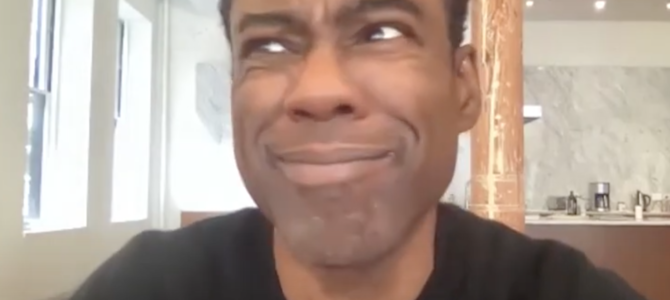Why is the majority of contemporary entertainment boring? Chris Rock blames cancel culture. As a growing number of comedians speak out against its detrimental effect on comedy, Rock reiterated his long-held position on “The Breakfast Club” this week.
Rock was asked by hosts DJ Envy and Angela Yee about the impact of cancel culture on stand-up, to which he replied that there is already a check system built into the art form: live audiences.
“When you’re a comedian, when the audience doesn’t laugh, we get the message. You don’t really have to cancel us because we get the message. They’re not laughing, our feelings hurt,” he told listeners. “I don’t understand why people feel the need to go beyond that.“
Rock said attempts at canceling are “a disrespect to the audience,” who ought to be allowed to determine what they do and don’t like for themselves. Further, this obsessive control over what can and cannot be said is ruining content for said audience.
“What happens is everybody gets safe and nobody tries anything. Things get boring. I see a lot of unfunny comedians, unfunny TV shows, unfunny movies because people are scared to make a move and that’s not a good place to be. We should have the right to fail because failure is a part of art. It’s the ultimate cancel,” he said.
The comedian has taken shots at cancel culture before, during the host-less 2020 Oscars, in which he and Steve Martin joked about the Twitter mobs responsible for Kevin Hart being removed as the ceremony’s host for decade-old tweets deemed by some to be homophobic.
He is entirely correct about the destruction of entertainment by way of cancel culture. Aside from the fact that it’s wrong to attempt to ruin someone’s life over comments some deem offensive, this zero-tolerance policy of adhering to an ever-changing set of rules is creating very boring art.
“Saturday Night Live” has become unwatchable, in part due to a woke sensibility and a refusal to even poke fun at the absurdities of the left and undisguised vitriol towards the right, despite a long history of affectionately ribbing politicians on both sides of the aisle. Late-night talk shows have replaced humor with political pandering. Escapist films and shows forget that their charm comes from likable, realistic characters and enjoyable action, not surface-level woke lectures and one-dimensional cutouts of strong women or evil men.
The power that content producers and creators have given to a vocal minority of angry strangers on the internet is absurd and has led to this dearth of creativity. And why would creators push boundaries and innovate, or even push back ever so slightly against the status quo, when one misstep can end a career in an instant?
Luckily, some mainstream creators continue to survive this hyper-censored entertainment landscape. I doubt there is a boundary that either “South Park” or “It’s Always Sunny in Philadelphia” hasn’t pushed. But their continued success seems mainly contingent on a reputation for the outrageous, the brash exception to an increasingly strict rule.
Chris Rock is right. Audiences deserve better.









